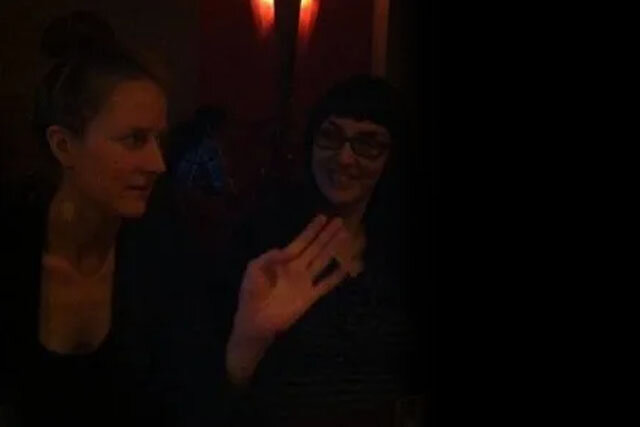Guest Post: Kinew’s Apology by Kate Sjoberg
Dear friends,
Kate shared this piece of writing with me as part of the Embodying Ethics course, and because I am deeply interested in First Nations issues I asked if I could share it with you. She asks some really important questions. Enjoy, Elaine
A provincial election is underway in Manitoba, and a number of candidates have come under fire for their comments in social media and previous work. Wab Kinew is one of these candidates. This writing responds directly to some of the reactions to his words, actions, and candidacy, and also how these elements have been interpreted in the public sphere.
There are some lessons from this Wab Kinew story that are being missed that I want to talk about. This writing is motivated in part because I am witnessing white settlers like myself having conversations where he is thrown under the bus. These folks don’t know him personally and are relying on public sources of information about what has happened. The most important part though, for the point I want to make, is that these are people who call themselves allies to indigenous struggle, or who have said they are committed to restitution and/or reconciliation (however this is defined).
A few notes: I don’t believe allies or anyone else should offer Kinew a free pass.
This also isn’t actually about his current political project. Please keep that in mind if you read on.
I also don’t think he needs my defense, and this commentary is not about defending him. As Leonard Sumner said this week, Kinew can defend himself. And unlike Sumner, I don’t know Kinew personally.
All the same, it is well worth saying that if Kinew were white, the response would have been less harsh, and there would have been more openness to receiving his response, or at least less outright racism- like the references “hip hop wab” we heard from one reporter last week. I wish white people (myself first) were doing a better job pointing this out.
But, on to the point: I’m committed to working/stumbling towards just ways of living on this land, in this community. I don’t know what a just way of living looks like. I’ve seen ingredients of what it might look like, but we aren’t there yet, collectively. I think we get there together, through relationship. But we have a lot of learning to do to build relationships that can withstand the actions against indigenous peoples that we have been a part of on this land, and to actually be better to one another.
The starting point for this is to learn to recognize our mistakes, and take responsibility. We need to apologize in a good way. We need to risk learning new skills and ways of being in the world. We need to find and trust our teachers. We need to listen to, and by invitation/with consent, support, and work with the people we have hurt.
Most of us are not very good at this. I am not very good at this. And so, to me, Kinew has offered an important lesson. Repeatedly he has said that the actions he has been called to account for were unequivocally wrong, apologized, and demonstrated the ways that he has actively sought to change wrong thinking and wrong actions in his life. Few of us have had the opportunity to see this kind of act happen, but it is happening. We should all be taking notes.
Some of the responses I’ve seen to Kinew’s apologies tell me that either we don’t want people to change, or we don’t believe they can. It tells me that forgiveness is off the table.
If these things are true in spite of his work to show change, then the justice we say we want on this land is impossible. If Kinew can’t change, then I can’t change either. No one can.
The comments he has been called to account for make me sick to my stomach. And also, I have been racist. I have been sexist. I have said things I regret on social media, and in other venues. I have hurt other people. I have not always apologized for my actions. And some of my apologies have been done so poorly as to cause additional harm.
How do we understand our inability to account for our actions, and our inability to take public apology seriously? A lot of this has to do with privilege, aversion to vulnerability, power dynamics, and a lot of it has to do with the public shaming that comes with this kind of accountability. The kind we are seeing now.
If we are committed to decolonized justice on this land, we need to welcome the idea that people can change into our culture. What does it look like to support a culture of accountability? What kind of humility do we need to practice to be able to make an apology, or accept one from someone else?
This is not about supporting mistakes. This is about acknowledging the reality that we make mistakes, and also the possibility that we can learn and do differently.
Maybe Kinew’s learning has been too much. Maybe we can’t imagine taking on the kind of growth that he says he is committed to. What is possible when those comments are a part of one’s past? Maybe believing what he is saying about the changes he has made and is making in his life means we also have to hold ourselves to a higher standard- one that we just aren’t ready for.
Kate Sjoberg lives on Treaty One territory in Winnipeg Manitoba. She works and volunteers in community organizing and political projects, and convenes weekly community meditation and learning gatherings at her home.


